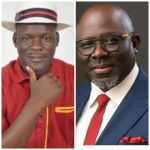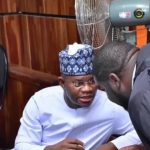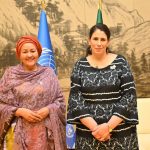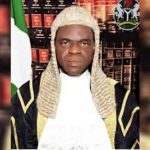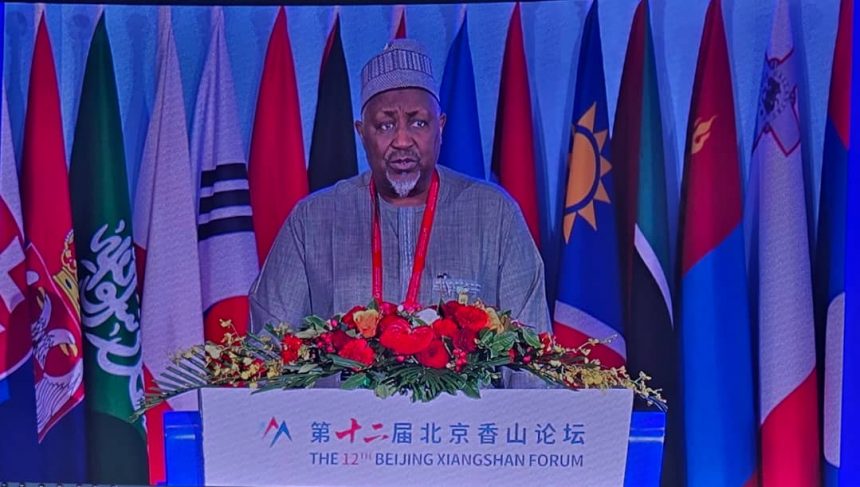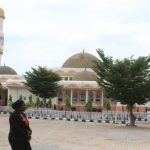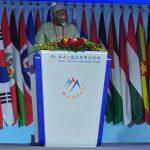Championing Peace through Dialogue: Nigeria’s Defence Minister Delivers Visionary Call at Beijing Xiangshan Forum
By Bala Salihu Dawakin Kudu, Democracy Newsline Newspaper
19th September 2025
Beijing—- In a world increasingly beset by geopolitical tensions, the voice of moderation, reason, and proactive diplomacy echoed powerfully at the 12th Beijing Xiangshan Forum as Nigeria’s Honourable Minister of Defence, H.E. Mohammed Badaru Abubakar, CON, mni, took centre stage with a keynote address that called for a renewed global commitment to peace through dialogue and consultation.
Delivering his remarks during the Fourth Plenary Session under the theme “Upholding International Order and Promoting Peaceful Development,” Minister Badaru delivered more than just a speech—he presented a vision for collective security, grounded in Nigeria’s experience, values, and leadership in regional peacebuilding.
“Dialogue succeeds where confrontation fails. It is the foundation on which lasting security is built,” he declared to a packed auditorium of defence ministers, military chiefs, diplomats, policy experts, and academics representing over 100 countries.
Drawing from Nigeria’s rich history in peace operations, Minister Badaru detailed a series of regional and domestic initiatives that have showcased the country’s commitment to peace and stability. From ECOWAS interventions in Liberia, Sierra Leone, and The Gambia, to Nigeria’s pivotal role in the Multinational Joint Task Force combating Boko Haram, the Minister painted a picture of a nation not only defending its borders, but shaping the contours of peace across West Africa.
At home, he cited the Niger Delta Amnesty Programme and Operation Safe Corridor—an initiative designed to deradicalize and reintegrate repentant insurgents—as practical examples of how inclusive dialogue can mend fractures and restore trust in communities once plagued by violence.
“Even the most complex crises can be resolved when dialogue is paired with inclusion, legitimacy and sustained engagement,” Badaru said, reiterating that military might must be complemented by human-centric strategies.
Minister Badaru’s message was also deeply anchored in the Renewed Hope Agenda of President Bola Ahmed Tinubu, GCFR. The agenda promotes strategic autonomy, robust reforms, and proactive international engagement—key themes that the Minister connected to Nigeria’s foreign and security policy posture.
He emphasized that Nigeria’s security at home and its role abroad are two sides of the same coin, with domestic reform and international collaboration reinforcing one another to create the conditions for lasting peace.
“Nigeria does not seek influence through dominance,” he said. “Rather, we contribute to peace through partnership, legitimacy, and a willingness to listen.”
As the world grapples with new and emerging threats—ranging from climate-induced migration to cyber insecurity and the resurgence of extremism—Minister Badaru’s speech stood out as a rallying call for a shift in mindset. He urged global powers, regional organizations, and civil societies to embrace dialogue, consultation, and collaboration as shared responsibilities in upholding international order.
He noted that peace is not merely the absence of war, but the presence of systems that allow societies to resolve conflict without violence. “We must build bridges where walls are being raised,” he urged.
Observers at the forum praised Minister Badaru’s keynote as one of the most balanced and pragmatic speeches of the session, noting Nigeria’s experience as a valuable template for other countries grappling with multidimensional security challenges.
A senior Southeast Asian diplomat commented, “Minister Badaru reminded us that military solutions alone cannot heal divided societies. His voice is timely and needed in today’s fractured international landscape.”
As global leaders continue to navigate the uncertain terrain of 21st-century security, Nigeria’s message from Beijing is clear: Peace is not passive—it must be pursued deliberately, collaboratively, and inclusively. Minister Mohammed Badaru Abubakar’s address serves not just as a policy statement, but a moral call to action—one that elevates the role of dialogue above discord, and unity over division.
With Africa’s most populous nation stepping confidently into its role as a regional peacebuilder and global partner, the future of international cooperation may very well hinge on such voices of wisdom, moderation, and hope.

